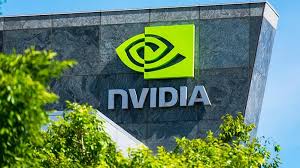ANALYSIS: Behind Nvidia's High-Stakes Bet on 'Sovereign AI' Amid Market Scrutiny

A recent surge in high-profile executive stock sales at chipmaking giant Nvidia has ignited a fierce debate among investors and analysts, placing the company’s record-breaking valuation under a microscope. The sales, totaling over a billion dollars, have triggered questions about leadership's long-term confidence. This scrutiny coincides with Nvidia's aggressive strategic pivot towards 'Sovereign AI,' a move the company presents as its next global growth engine, creating a sharp clash between concerns over insider sentiment and the firm’s expansive vision for the future.
The Scrutiny Over Stock Sales
The central point of contention stems from regulatory filings showing significant stock sales by top Nvidia executives, including CEO Jensen Huang. Prominent financial news outlets, citing a Financial Times investigation, have highlighted that insiders have liquidated over $1 billion in company shares this year. This has been interpreted by some market commentators as a potential lack of confidence in the company's ability to sustain its monumental growth.
Reports from outlets like CNBC have amplified concerns that such large-scale selling could signal that leadership believes the stock’s valuation may have peaked. "When those closest to the company sell significant stakes, it inevitably raises questions for the average investor," noted a market analysis segment.
However, compensation experts and many Wall Street analysts argue this narrative oversimplifies standard executive financial planning. A significant portion of these sales, they point out, are conducted under pre-scheduled SEC Rule 10b5-1 trading plans. These plans are established months in advance, allowing insiders to sell a predetermined number of shares at a predetermined time to avoid any accusations of trading on non-public information.
"For executives whose compensation is heavily weighted in equity, periodic, planned diversification is a textbook financial strategy, not necessarily a comment on the company's future," said a senior analyst at Evercore ISI in a note to investors. They emphasized that executives like Huang still retain vast holdings worth tens of billions, ensuring their financial interests remain deeply aligned with those of shareholders. Despite the headlines, the overwhelming consensus from investment banks remains bullish, with a majority of analysts maintaining 'Strong Buy' ratings, citing the company's fundamental performance and technological dominance as more critical indicators than executive trading patterns.
'Sovereign AI': A New Growth Frontier or a Hedge?
As questions about its current valuation persist, Nvidia has been forcefully promoting a narrative centered on its next major growth vector: Sovereign AI. This strategy involves providing the technology for nations around the world to build and control their own AI infrastructure, from large-scale language models trained on their own data to domestic cloud computing capabilities.
Company officials have framed this as a multi-trillion-dollar opportunity that is largely independent of spending cycles from traditional U.S. tech giants. "Every nation needs to own its own intelligence," Huang stated at a recent industry event, outlining a vision where countries across Europe, Asia, and the Middle East become major customers for Nvidia's full-stack platform. Analysts at Morgan Stanley have validated this potential, calling it a "durable and diversified demand driver" that could insulate Nvidia from potential slowdowns in its core customer base.
This strategic pivot, however, occurs as some investment commentary outlets, particularly The Motley Fool and others, continue to push a 'who is the next Nvidia?' narrative. Speculation has centered on companies like Meta Platforms, with its extensive AI research and infrastructure, and even OpenAI, as potential long-term rivals. The CEO of SoftBank recently suggested OpenAI could become a significant player in the AI chip space, feeding the idea that Nvidia’s dominance is not unassailable.
Yet, industry experts contend this 'competitor' framing is often misdirected. Many of the companies named as potential rivals are, in fact, among Nvidia’s largest and most crucial customers. Furthermore, they argue that Nvidia’s competitive advantage—its 'moat'—is not just its hardware but its deeply entrenched CUDA software ecosystem. A recent report on talent acquisition further counters the threat narrative, showing that Nvidia remains a primary destination for top-tier AI researchers and engineers, a key leading indicator of a company’s ability to sustain its innovative edge.
Product Momentum and Market Dominance
While the high-level financial and strategic debates continue, the company's position in its core markets appears to be strengthening. In the enthusiast and consumer sectors, a wave of positive reports and leaks concerning Nvidia’s next-generation RTX 50 series graphics cards has dominated tech media. These reports consistently highlight significant upgrades in video memory (VRAM), a move seen as a direct response to prior criticism from its gaming and creative professional user base.
This positive product momentum is viewed by analysts as a strategic neutralization of past consumer grievances, reinforcing the company’s commitment to its foundational markets. It demonstrates an ability to listen and adapt, shoring up brand loyalty.
This product-level strength is a microcosm of its broader enterprise dominance. The tight integration of hardware and the CUDA software platform creates a powerful lock-in effect, making it technologically and financially difficult for enterprise customers to switch to a competing architecture. This ecosystem, built over more than a decade, remains Nvidia's most formidable defense against any company aspiring to become the 'next Nvidia.'
As the market continues to process these conflicting signals, the discourse surrounding Nvidia remains sharply polarized. The ultimate trajectory of the company's valuation will likely depend on whether investors focus on the optics of executive stock sales and speculative long-term threats, or on the tangible growth opportunities the company is actively constructing in new global markets like Sovereign AI, underpinned by its enduring technological ecosystem.

